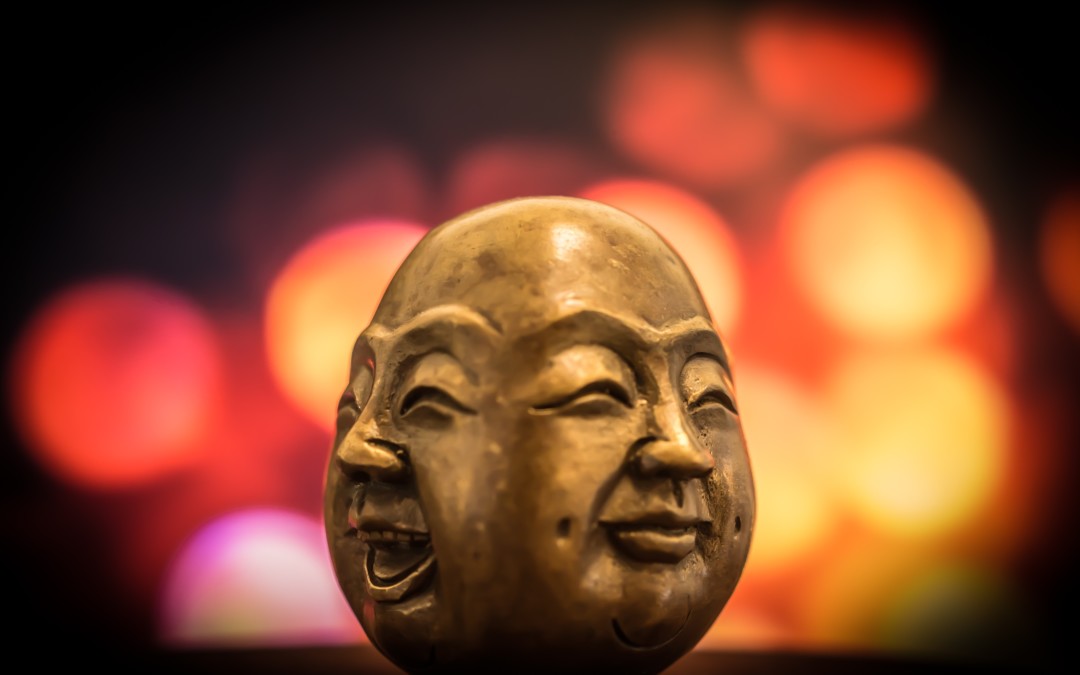
by Teray Garchitorena Kunishi, ND | Jun 10, 2016 | Anxiety, Books, insecurity, Research, Uncategorized |
There’s no shortage of advice in the world. Everywhere you turn, someone is telling you the absolute best way to do live your life. Someone says, “Antidepressants are dangerous!” Another piece tells you, “Stop shaming people for taking meds for depression.” Then you read, “People take drugs for diabetes, why shouldn’t you take it for depression? They are both diseases.” “Vegetarians are less depressed.” “Paleo cured my depression.” And something inside you freaks out. I fall into this trap when it comes to baby-raising advice. When one popular baby sleep book stated that “by twelve weeks, your baby should be able sleep up to 10 hours straight”, I could almost feel my blood pressure rising. I’m lucky if baby K does five!!! I thought frantically. Ever get that feeling? You’re gripped with the fear that you’re doing it wrong. This literally raises cortisol (your stress hormone), because of the sense of urgency created. Interestingly, elevated cortisol is commonly found in depressed and anxious people. Here’s what I do to stay sane and happy amidst the deluge: I hold it all very lightly. Holding it lightly means to take it in…and then pull back and remember that you are figuring out things as best you can. Naturally, even as I write this, the mean voice in my head snarks, “Well, if you didn’t hold it all so lightly, you’d probably be farther along by now!” What does your inner mean voice say? Pull back and hold that lightly as well. In practical terms, it means snapping that baby sleep book shut, setting it aside, and observing where my baby is...

by Teray Garchitorena Kunishi, ND | May 27, 2016 | Uncategorized |
Where do you begin? One of the most frequent questions I get asked is, how to get started on the road to finally getting off antidepressants? Think about it: You’ve been taking antidepressants, and while they seem to be doing something for you, it’s simply not enough. Or the side effects are terrible, and you just don’t feel that great on them. But it’s not as simple as just stopping the meds. In fact, it can be dangerous to do so. Maybe you’ve already tried, and ended up right where you started – depressed, tired, anxious all over again. Here’s what I suggest: First, you should know that it’s highly unlikely that you have a serotonin deficiency. No study has ever succeeded in finding a link between low serotonin and depression. What is more likely is that you are out of balance in one or more of the following: 1. Physical wellness – not just in your brain, but your entire body as a whole. 2. Purpose and meaning – life just seems empty without it. 3. Healthy relationships – these can make or break your happiness. To find out which of these really need the most work, I have all of my clients take the Happiness Archetype Assessment. It’s a simple yet powerful self-quiz that lets you know your greatest strengths, as well as what needs the most work now. The Happiness Archetype Assessment is incredibly clarifying. It helps you decode all the information out there about happiness, and focus on the elements that are most important for you. You can access that test via the box on...

by Teray Garchitorena Kunishi, ND | May 20, 2016 | Uncategorized |
National Geographic just published a beautiful photo essay about the empty prisons in the Netherlands. They have been re-purposed into shelters for refugees seeking asylum from armed conflict. In these shelters, they learn to speak Dutch and ride bicycles – “both skills are essential to life in the Netherlands.” They are free to come and go, and have made friends among their Dutch neighbors. While the reasons behind the Netherlands’ declining prison population are complex, I’m sharing this story with you because it’s a beautiful analogy for how to relate with difficult emotions. In a state of fear and scarcity, the impulse is to reject the less appealing parts of yourself. The aspects of you that are needy, messy, and not quite ready for public consumption; you make them wrong, or bottle them up so they don’t bother you…much. But what if, as Sufi poet Rumi suggests, you welcome and entertain them all? From his poem, Guest House: Even if they are a crowd of sorrows, who violently sweep your house empty of its furniture, still, treat each guest honorably. He may be clearing you out for some new delight. Let’s face it, life is scary. Being human, with all our weaknesses and insecurities, it’s tough. You try to put on a happy face and pretend the hard stuff isn’t there. Or you criticize others, when really, they are a reflection of your own failings. What might it be like if, instead of being afraid of the difficult & dark aspects of this life, you cultivate what Buddhist teacher Pema Chodron calls “unconditional friendliness” towards yourself and everything you...
by Teray Garchitorena Kunishi, ND | May 15, 2016 | Uncategorized |
If you’re a parent, you know what it’s like to be up at an ungodly hour with a screaming baby, trying to figure out how to calm her down – is she hungry, wet, or needing to burp? Does she hate me? Am I failing as a mother? I found myself in that exact struggle with my four week old, when my husband, who works late into the night, came through the door. He asked if I was ok. I glared at him, and snapped at his offer to help. Because somehow, it was all his fault. Sound familiar? Blame is one of the most corrosive elements in any relationship. Why do we blame? Researcher Brene Brown has studied blame, and identified these triggers for blaming: Pain – You want it to be someone’s fault, because it helps take you out of feeling hurt and uncomfortable. Anger – Blame is a way to discharge anger and direct it towards someone – or in my case, someone other than my baby. If anger is the bullet, blame is the gun. Overwhelm – When things have been too much to handle, blame is your way of putting the burden on someone else – whether they deserve it or not. Control – Blame gives some degree of comfort when you feel out of control. When so much is uncertain, figuring out whose fault it is provides a measure of relief. In a weird way, it feels good to blame. At least in the five seconds that you’re doing it. But when you make a habit of blaming.you quickly use up any amount of goodwill you have stored up...
by Teray Garchitorena Kunishi, ND | Jan 25, 2016 | Uncategorized |
I’ve been thinking a lot about nerve. One nerve in particular, that appears to hold a potent key to reversing depression, heart disease, and autoimmune disease. This nerve also provides the anatomical basis for the effectiveness of meditation and breathwork in reversing so many conditions, from depression to chronic pain. The wandering wonder It’s called the vagus (sounds like Vegas) nerve. It starts out in the brain, travels down the neck, and wanders throughout the organs in the torso, providing a link of communication between the brain and the rest of the body. The vagus nerve is the central command of your parasympathetic nervous system, which regulates your ability to “rest and digest”. And science shows that it has a profound effect on almost every aspect of your health. The stronger your vagus nerve, the quicker you are able to recover from stressful events. It also protects you from diabetes, heart disease and stroke. A robust vagus makes you happier, more resilient, and helps you feel more connected to other people. A weak vagus nerve, on the other hand, means you are more likely to experience severe inflammation, anxiety, and chronic disease. Proof of its power Researchers studied the powerful effect of the vagus nerve in 20 patients with severe rheumatoid arthritis, a painful and debilitating disease in which the body attacks the joints. These patients were fitted with a device similar to a pacemaker, and used it to stimulate the vagus nerve directly through the neck. Eighty percent of participants experienced significant improvement, with many of them getting of anti-inflammatory meds entirely. The Depression Connection Now, remember that...



